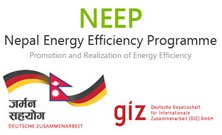- Establish a management information system on loading, efficiency, and specific fuel consumption.
- Prevent infiltration of air, using doors or air curtains.
- Monitor O2/CO2/CO ratios and control excess air level.
- Improve burner design, combustion control, and instrumentation Ensure that the furnace combustion chamber is under slight positive pressure.
- Use ceramic fiber linings in the case of batch operations Match the load to the furnace capacity.
- Retrofit with heat recovery devices Investigate cycle times and avoid extended hours of runtime and excess heating.
- Provide temperature controllers. Ensure that the flame does not touch the stock. Repair damaged insulation.
- Recover maximum heat from flue gases. Ensure upkeep of heating surfaces by regular cleaning.
- Use an infrared gun to check for hot wall areas during hot weather.
- Ensure that all insulated surfaces are clad with aluminum lining.
- Insulate all flanges, valves, and couplings
References
Bureau of Energy Efficiency, 2010 Guidebook for National Certification Examination for Energy Managers and Energy Auditors: Book 2
Asian Productivity Organization, 2010 Training Manual on Energy Efficiency for Small and Medium Enterprises
Nepal Energy Efficiency Programme, 2012-2016, Investment Grade Energy Audits



